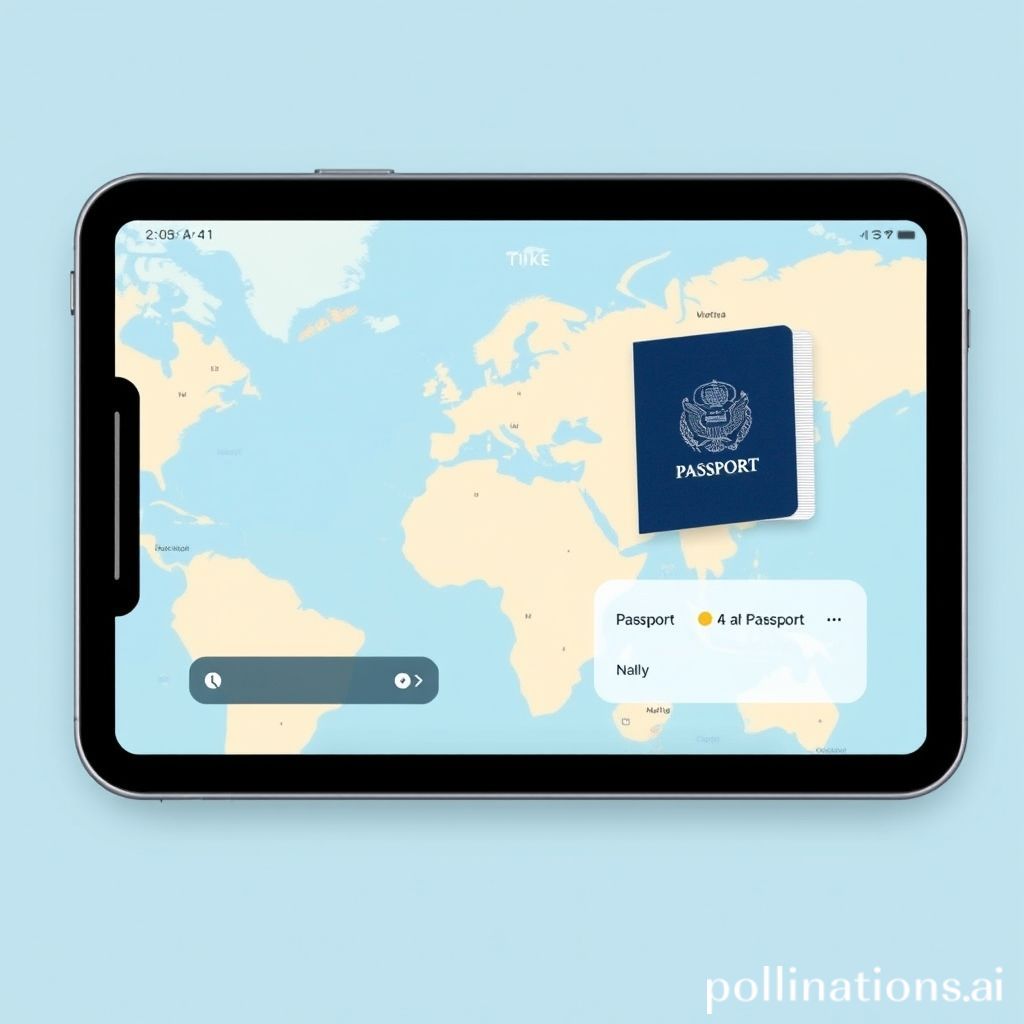
You Can Use Apple Wallet for Your Passport—but Only for This 1 Type of Air Travel
You Can Use Apple Wallet for Your Passport but Only for This 1 Type of Air Travel
Hey there, fellow travelers! We all love the convenience of Apple Wallet, right? From storing your credit cards and boarding passes to even your driver's license (in some states), it's a digital powerhouse in your pocket. So, the question on many minds is: can you ditch the physical passport and use your Apple Wallet for international air travel?
The answer, as with many things in the world of travel regulations, is a bit nuanced. Let's break it down and see where you can (and can't) use your Apple Wallet passport.
The Current Reality: Apple Wallet Passport and Limited Air Travel
As it stands today, you cannot use your Apple Wallet to replace your physical passport for traditional international air travel. If you're hopping on a flight from New York to Paris, or London to Tokyo, you absolutely need your physical passport in hand. No ifs, ands, or buts. Airline staff and immigration officials worldwide are trained to verify physical passports, and the technology isn't widely implemented yet to accept digital alternatives universally.
So, where does Apple Wallet's passport functionality come into play? The answer lies in cruise travel, specifically with certain cruise lines like Carnival.
Apple Wallet Passport and Cruise Travel: A Promising Partnership
Carnival Cruise Line has partnered with Apple to allow passengers to use their iPhone or Apple Watch to present their US passport at embarkation. This is a game changer for cruisers, offering a streamlined and secure way to board their ship.
Here's how it works:
1. Adding your Passport: You can securely scan your passport into the Carnival Hub app, which then transfers the encrypted information to your Apple Wallet.
2. Verification: During embarkation, you simply hold your iPhone or Apple Watch near the reader, similar to using Apple Pay. Your identity is verified, and you're ready to set sail!
This feature significantly speeds up the embarkation process and reduces the risk of losing your physical passport while onboard. It's a win win!
Why Cruise Ships and Not Airports?
You might be wondering why this digital passport functionality is available for cruises and not yet for air travel. Here's a glimpse into the reasons:
Controlled Environment: Cruise lines have more control over their embarkation and disembarkation processes than airports. This allows them to implement and manage the technology required for digital passport verification more easily.
Partnerships: Cruise lines can directly partner with technology companies like Apple to develop and deploy these solutions.
International Regulations: International air travel is governed by a complex web of regulations and agreements between countries. Implementing digital passport verification on a global scale requires widespread cooperation and standardization, which takes time.
Security Concerns: Security is paramount in both air and sea travel, but airports face a broader range of potential security threats. Digital passport verification systems need to be rigorously tested and secured to prevent fraud and identity theft.
The Future of Digital Travel Documents
While Apple Wallet passport use is currently limited to specific cruise lines, the trend toward digital travel documents is clear. Many organizations, including the International Air Transport Association (IATA), are exploring digital travel credentials (DTCs) that could eventually replace physical passports for air travel.
Imagine a future where you can securely store your passport, visa, and other travel documents on your smartphone and seamlessly present them at airports worldwide. This would not only speed up the travel process but also reduce the risk of losing or damaging your physical documents.
However, widespread adoption of DTCs faces several challenges, including:
Standardization: Developing a universal standard for digital travel documents that is accepted by all countries.
Interoperability: Ensuring that digital travel document systems can seamlessly communicate with existing border control and airline systems.
Security: Protecting digital travel documents from fraud and identity theft.
Privacy: Safeguarding travelers' personal information.
Comparing Current and Future Passport Options
Here's a quick comparison table to visualize the current and potential future of using Apple Wallet for passport purposes:
| Feature | Physical Passport | Apple Wallet (Cruise) | Future Digital Travel Credentials |
| | | | |
| Air Travel | Required | Not Supported | Potentially Accepted |
| Cruise Travel | Required | Supported (Carnival) | Potentially Accepted |
| Security | Physical Document Security | Encrypted Data, Biometric Authentication | Enhanced Encryption, Biometric Authentication |
| Convenience | Less Convenient | More Convenient | Most Convenient |
| Risk of Loss | Higher | Lower | Lowest |
Conclusion: The Digital Horizon of Travel
While you can't ditch your physical passport for most air travel just yet, the use of Apple Wallet for passport verification on Carnival cruises offers a glimpse into the future of travel. As technology advances and international cooperation increases, we can expect to see digital travel documents become more widely accepted, streamlining the travel experience and making it more secure.
Until then, keep your physical passport safe and sound, and if you're planning a Carnival cruise, get ready to experience the convenience of using your Apple Wallet to embark! It's exciting to imagine the future where travel documents are as easily accessible and secure as the other digital essentials we carry in our pockets every day. Safe travels!
Comments
Post a Comment